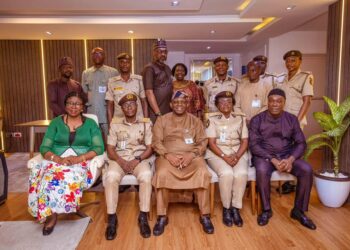Importers of the Liquefied Petroleum Gas (LPG), commonly called cooking gas are lamenting what they called inconsistencies in government policies; especially the tariffs payable on imported cylinders coupled with the absence of waiver on import duty and Value Added Taxes (VAT) on locally sourced LPG. All these, they said, are combining to cripple the LPG business in Nigeria.
Importers of the Liquefied Petroleum Gas (LPG), commonly called cooking gas are lamenting what they called inconsistencies in government policies; especially the tariffs payable on imported cylinders coupled with the absence of waiver on import duty and Value Added Taxes (VAT) on locally sourced LPG. All these, they said, are combining to cripple the LPG business in Nigeria.
Shipping Position Weekly gathered that the operators had approached the government seeking for tax removals and VAT exemption on locally sourced cooking gas with the aim of bringing down the price of the commodity, but their demands are yet to be met.
One of the major Operators of the LPG who spoke to our correspondent in Lagos last week, Mr. Chukwuma Ike, said that 20 percent VAT is being collected by government on imported cylinders as against the five percent that was paid previously. According to him, “the new tariff was fixed last year and it is to extend so till 2012”.
“Kerosene is being subsidized, while the LPG has been deregulated, and we all know that LPG is cleaner and safer, in the last three months, the price of LPG has gone up from N2,000 to N3,000 per cylinder” he complained.
The president of the Nigerian Liquefied Petroleum Gas association, Alhaji Auwalu Ilu also lamented in Lagos last week that the government has refused to be very categorical about the fact that the LPG is non- VATable whether the gas is sourced locally or imported.
Apart from this, he faulted the verification policy of the regulator; Standards Organization of Nigeria (SON) on importers of LPG saying that the policy is one of the causes of the scarcity and high cost of the product in the country.
According to Auwalu, SON has made it mandatory for importers of cooking gas to sponsor its officials to the countries where the products are being imported from for verification to be conducted, he says that the whole process sometimes takes more than two weeks, thus shooting up cost for importers and scaring away potential investors.
He faulted the policy of the SON saying that there are other ways of conducting verifications apart from passing the bulk of travel and accommodation expenses of SON on LPG importers. “Operators have to sponsor two officials of SON for two weeks to inspect the facilities and the products at the country that you wish to import the product from into Nigeria, this is not helpful considering the cost implication; in fact some people see it as a form of extortion that should be stopped” he said.
Auwalu also called on the federal government to extend the implementation of the existing waiver of VAT and the import duty on domestic LPG as it is done for the imported ones, and that LPG should be among the non-VATable items.
















Discussion about this post